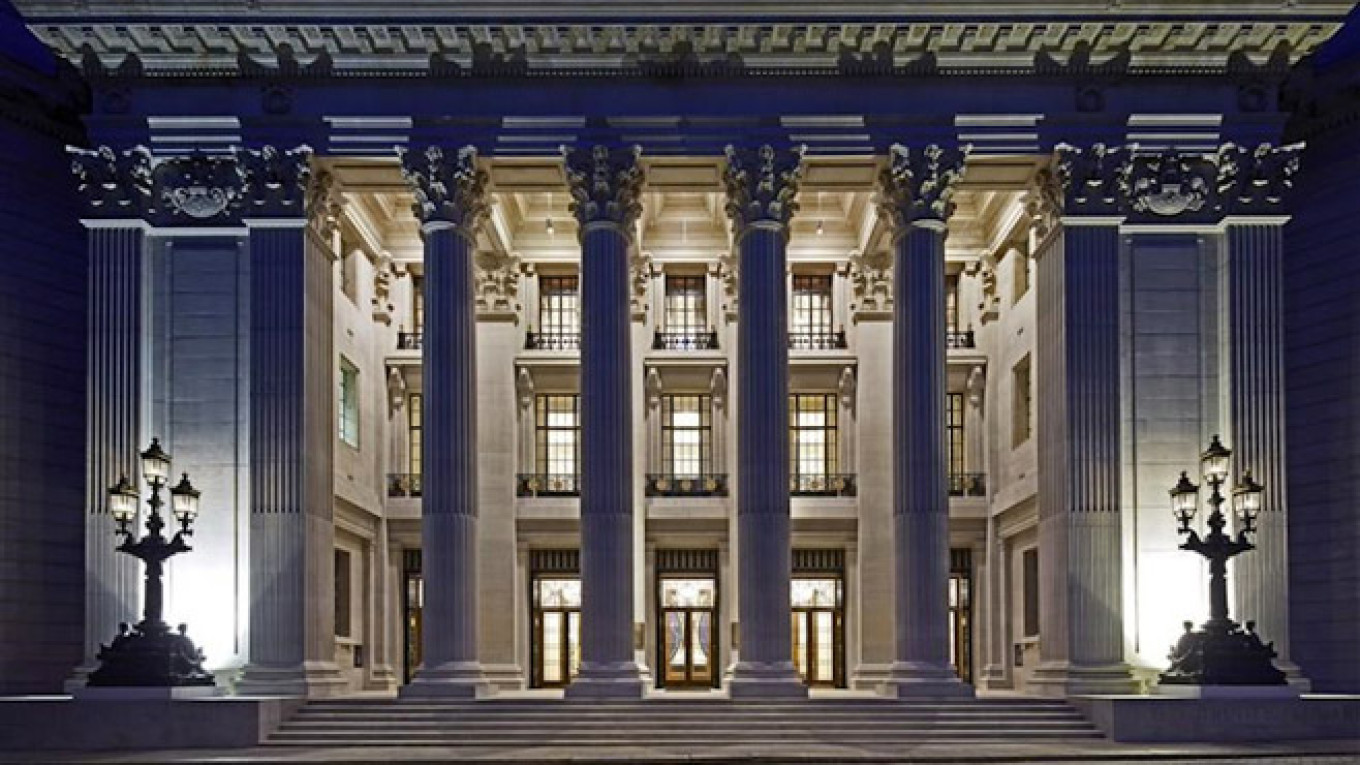Christie's International Real Estate helps the superrich buy superhomes.
If you don't have the £40 million ($60 million) in liquid assets you need to qualify as a "high net worth," the London-based consultants will be loath to spend time on you. What they're really fishing for are the ultrahigh net worths — people with £100 million of investable funds. Which, in many cases, means Russians.
"In London the top 15 percent of the market for highest values tends to be from Russian buyers or the [Central Asian] 'stans,'" Giles Hannah, Christie's International Real Estate senior vice president said in an interview with The Moscow Times. ?
Trophy Properties
Every culture has its ways of buying real estate. Ultrarich Chinese see international property as an investment vehicle. They typically put 70 percent of their liquid assets into property, spreading risk by buying large numbers of expensive, but not hyperexpensive, homes, Hannah said. They're not looking to live in them.
But Russians are thinking about lifestyle. They want the best home in the best place. That "flight for having a trophy property" among Russians — along with a search for safer places to put their money than Russia — played into a London high-end property boom:
"From 2005 to 2008 — pre [collapse of investment firm] Lehman? — you would put a property on a website and within an hour it would have sold before you'd even necessarily shown it. People would often not have much time to think. If you saw a property coming up for sale in a location like Chelsea or Knightsbridge you'd basically have that afternoon to buy it, because if you didn't buy it somebody else would."
Properties worth £15 million ($22 million) near prestigious, Russian-loved spots like department store Harrods would sell for up to 20 percent over their starting price within hours. Comparable pricing went out the window — "It would become about what someone was willing to pay," Hannah said.
Postcodes Don't Grow
The market cooled after Lehman Brothers' fall sparked a global financial crisis, but, "ironically, the wealthier people are now worth more than they were in 2008-09," Hannah said.
"In some cases … I am aware of a property that's gone up over 100 percent in value since 2009."
After 2008 the most expensive properties were no longer sold in hours, but they were still in demand because "they are effectively masterpieces," Hannah said, and they may come up for sale only every couple of years.
"If you're on that market, you're paying regardless of the economic climate. If you want that, you'll buy it."
Rarity is one of the reasons Russians and others see London as such a safe place to invest, Hannah said: "Those key post codes … are not growing. If you look at Dubai, they can build a new location in the desert."
Selling to Teenagers
Hannah said his company does due diligence and background checks on everyone they deal with. He has never come across a case when Christie's has worked with someone who was later jailed.
Buyers do want security, he said — "I've had to acquire things for clients that have needed things like armored glass, bombproof doors, panic rooms, rooms that can be effectively kidnap-proof" — but safety is a rising trend not only among Russians, but also among Americans and Europeans. ?
In fact, he said Russian customers were classy buyers: Christie's has a dedicated education department for them to use, and all these new rich have big teams of their own advisers.
Those advisers are helping Russian tycoons fix their legacies and launch their often Western-educated children.
"The next generation of wealth is coming through. A lot of these families from [Russia] are trying to secure and maintain their wealth. So often we're advising children on property purchases. People from teenagers upward. Late teens — not unusual at all for us to be purchasing apartments for them in Paris or London. The youngest person I've sold something to is about 16. They have me in their private office and they have their lawyers," Hannah said, adding, "the parents will always oversee."
Contact the author at p.hobson@imedia.ru
A Message from The Moscow Times:
Dear readers,
We are facing unprecedented challenges. Russia's Prosecutor General's Office has designated The Moscow Times as an "undesirable" organization, criminalizing our work and putting our staff at risk of prosecution. This follows our earlier unjust labeling as a "foreign agent."
These actions are direct attempts to silence independent journalism in Russia. The authorities claim our work "discredits the decisions of the Russian leadership." We see things differently: we strive to provide accurate, unbiased reporting on Russia.
We, the journalists of The Moscow Times, refuse to be silenced. But to continue our work, we need your help.
Your support, no matter how small, makes a world of difference. If you can, please support us monthly starting from just $2. It's quick to set up, and every contribution makes a significant impact.
By supporting The Moscow Times, you're defending open, independent journalism in the face of repression. Thank you for standing with us.
Remind me later.


